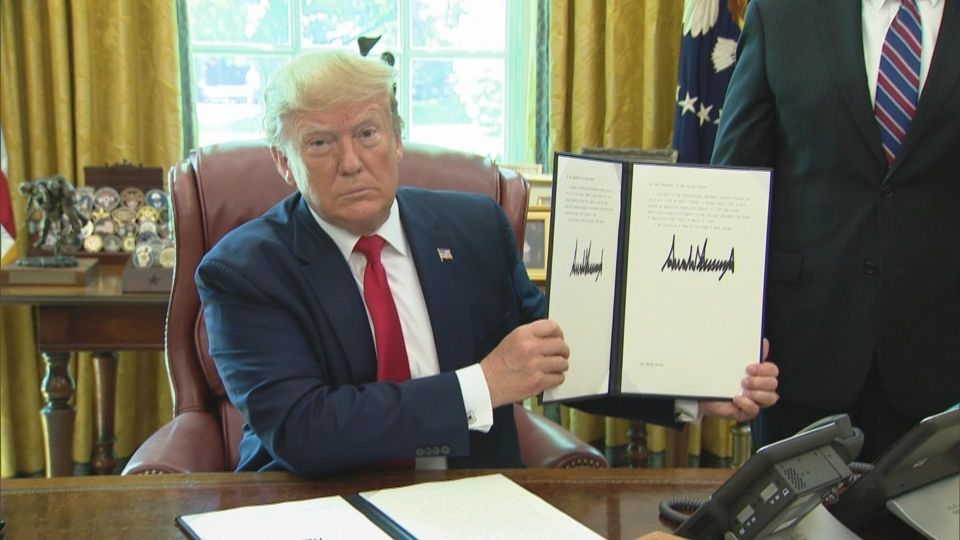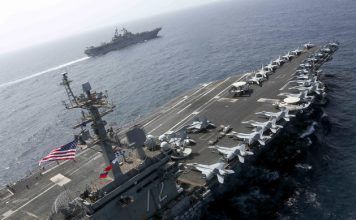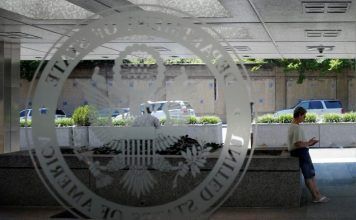The U.S. tried to intensify its Maximum Pressure Campaign on Iran last month, with a bid to extend a United Nations arms embargo on the country, as outlined in the Joint Comprehensive Plan of Action (JCPOA).
The U.S. drafted a resolution to extend the embargo — set to expire on October 18 — which asked for weapon sales to be banned indefinitely.
After the resolution failed to get approval from the United Nations Security Council, the U.S. then tried to trigger a snapback mechanism written into UN Security Council Resolution 2231 (UNSCR 2231) — designed to support the JCPOA — which if successful could reimpose all previous UN sanctions on the Islamic Republic of Iran.
Lawmakers and analysts have questioned whether the U.S. is eligible to invoke the snapback mechanism, after U.S. President Donald Trump withdrew the U.S. from the deal in May 2018. The Security Council must now consider whether the U.S. has a legal right to invoke the snapback.
Richard Goldberg, a senior advisor at the Washington-based Foundation for Defense of Democracies (FDD) and a former Trump administration advisor who advocated a more hawkish stance on Iran, tells Kayhan Life why he thinks the U.S. is within its rights to trigger the snapback, and what the impact of a unilateral decision to reimpose sanctions might be on the U.S. and Iran.
In a recent report for your Foundation, you wrote on the snapback mechanism, and argued that the U.S. was an inalienable participant to the JCPOA. Can you elaborate?
[aesop_content color=”#ffffff” background=”#0892d0″ columns=”1″ position=”none” imgrepeat=”no-repeat” disable_bgshading=”off” floaterposition=”left” floaterdirection=”up” revealfx=”off” overlay_revealfx=”off” aesop-generator-content=”"UNSCR 2231 includes the United States in the definition of “JCPOA participants” and provides no contingency for how that definition can ever change. In effect, it provides snapback rights to the original participants in the JCPOA, regardless of their subsequent actions." [Richard Goldberg]”]
“UNSCR 2231 includes the United States in the definition of “JCPOA participants” and provides no contingency for how that definition can ever change. In effect, it provides snapback rights to the original participants in the JCPOA, regardless of their subsequent actions.” [Richard Goldberg][/aesop_content]
Under any conventional reading of a legal document, the United States most certainly remains a party eligible to trigger the snapback, because it is written into the Security Council Resolution as such. Contrary arguments seek to substitute political views for legal certitude.
The JCPOA was never redrafted to reflect the U.S.’s withdrawal from the agreement. Could that legally mean that the U.S. technically remains a party to the deal, giving Washington grounds to enact the snapback provision?
At issue is the Security Council resolution, not the text of the JCPOA. They are two separate legal documents: the former binds all UN member states while the latter only binds those few who participate. Changing a Security Council resolution requires passage of a new resolution, which would be subject to a U.S. veto. That is why no one has ever attempted to change the resolution to remove the United States’ right to a snapback — because the U.S. would never have allowed that to happen.
Do you think the sanctions should be reimposed and if so, why?
Without question. It’s critical to hold the Islamic Republic of Iran accountable for its nuclear deceit and violent behavior. We now understand from the International Atomic Energy Agency (IAEA) that the regime has been concealing undeclared nuclear material, activities and sites throughout the JCPOA. The regime cannot be allowed to deceive the international community and still reap strategic benefits like the expiration of the arms embargo or legitimacy for uranium enrichment. U.S. economic sanctions play an important role in squeezing the regime’s resources, but the snapback of UN sanctions is equally important to strip the regime of its political legitimacy.

If the U.S. reimposes the snapback sanctions unilaterally on September 20, how would that affect the U.S. and its relationship with other states?
Let’s remember that supporters of the JCPOA were convinced that U.S. sanctions alone could never work — that without Europe, Russia and China, our sanctions would be violated. That has proven false. If the U.S. now enforces the snapback by leveraging the deterrent power of U.S. sanctions, it will be successful no matter how they feel about it in Beijing, Moscow and Paris. Let’s also remember that the U.S. snapback will be supported by other UN member states like the [Persian] Gulf nations and Israel. So it will not be the U.S. going it alone.
How is Iran likely to respond if UN sanctions are reimposed?
I am doubtful that the regime will respond until the November election is over. If Joe Biden wins, the regime has a path to sanctions relief. If Trump wins, however, they must face the reality that the regime cannot withstand four more years of maximum pressure. The fact that the regime caved to the IAEA last week and allowed inspectors into two previously undeclared nuclear sites shows they are afraid of triggering a crisis before the presidential election in America.
Can the sanctions be reimposed without causing ordinary Iranian citizens undue hardship?
Frankly, the Iranian people will do much better if these UN sanctions come back. The regime wants to spend money on uranium enrichment and weapons from Russia and China rather than spending money on the Iranian people. What are they going to do with these weapons? Send them to foreign conflicts in Syria and Yemen? The snapback forces the regime to spend money on the people, not on foreign conflicts.








